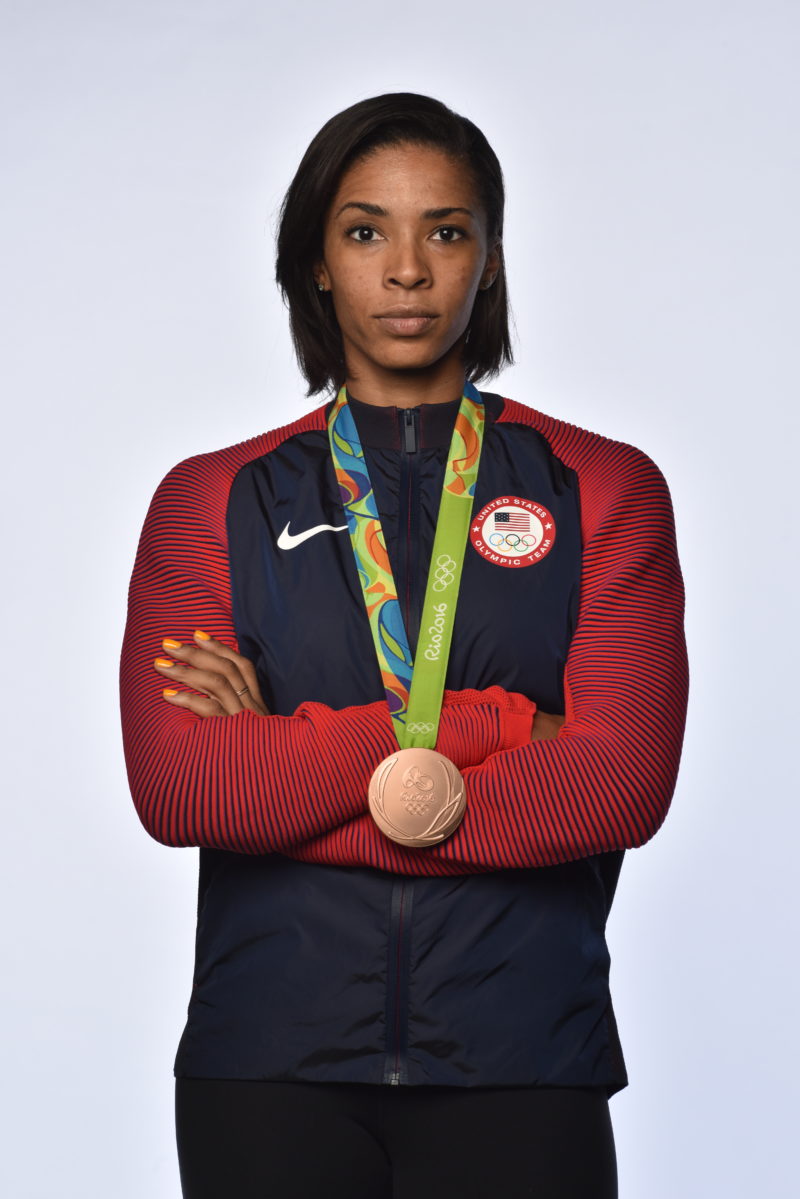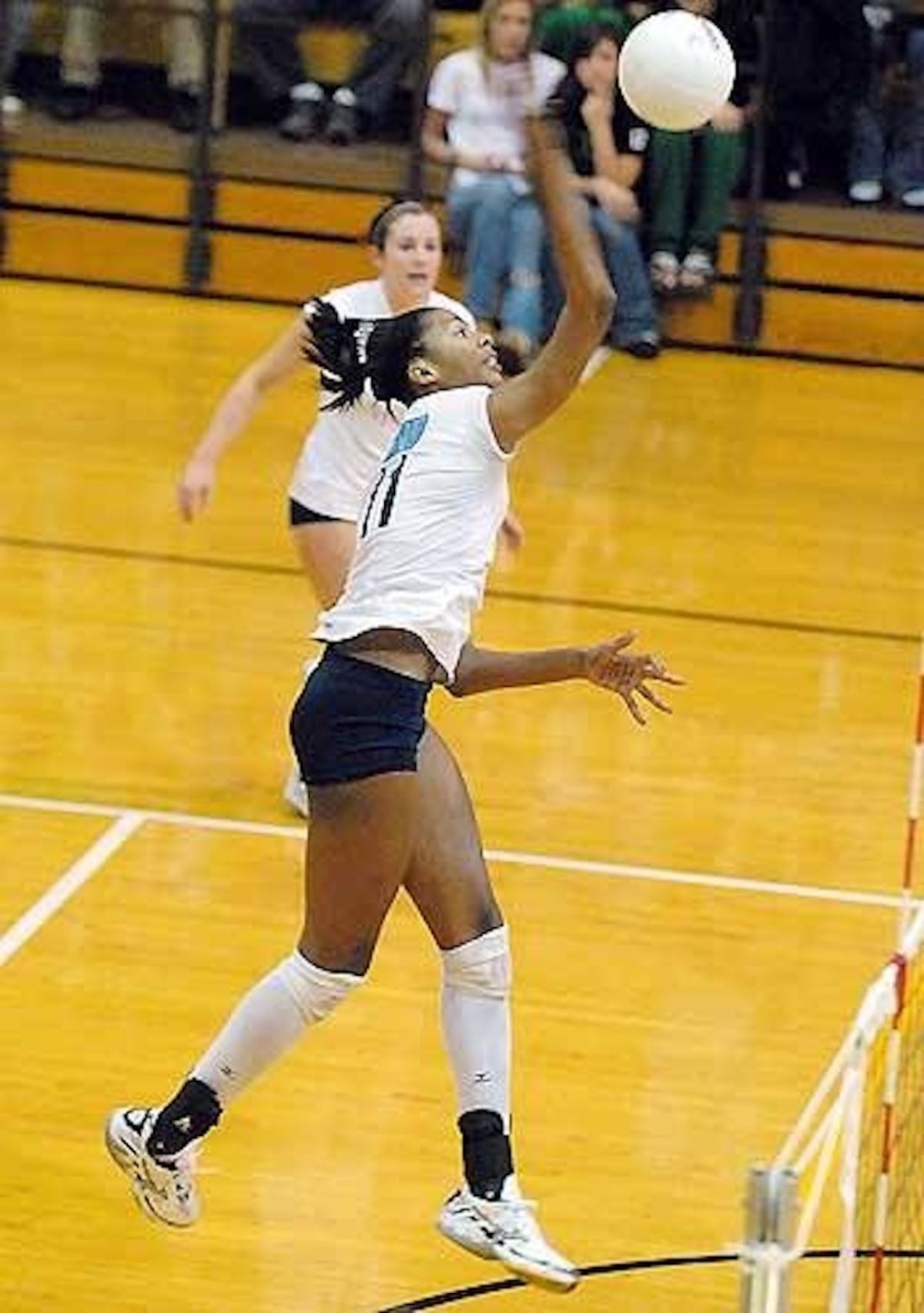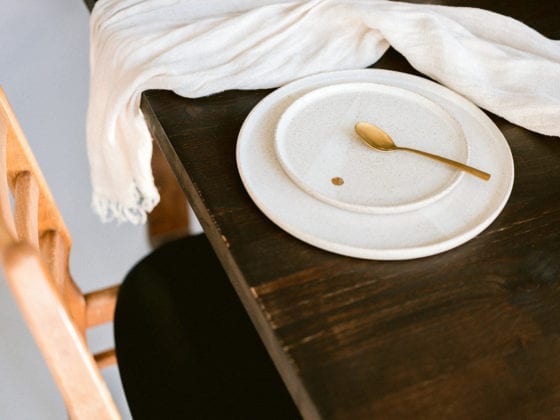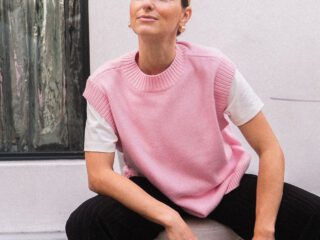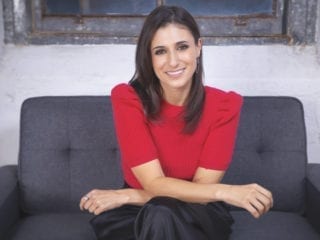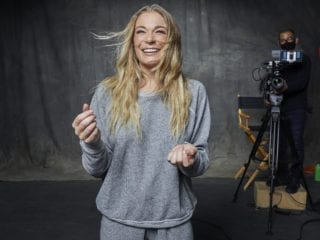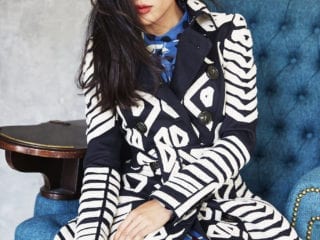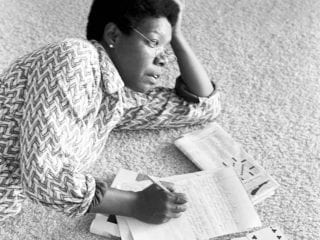In the world of volleyball, Rachael Adams might be considered an underdog. She stumbled into the sport accidentally as a teenager, but as an adult, her hunger to take on new challenges drove her to succeed as a professional athlete. Today, Adams is a member of the U.S. Women’s National Volleyball Team, a professional player overseas and an Olympic medalist.
Her sports resume includes a 2016 Olympic bronze medal (where she scored 84 points, ranked 11th in scoring and tied for third in Best Blocker), titles as the 2016 USA Volleyball Female Indoor Most Improved Player of the Year and the Best Middle Blocker of 2016 FIVB World Grand Prix and membership of the gold medal winning USA A2 Blue Team at the USA Volleyball Open National Championship.
Despite her success, her journey has not been the most conventional. Unlike her peers, Adams got a late start in the game of volleyball, joining her first organized team in high school. Her willingness to take on new challenges and work her way up have been the defining traits of her athletic career, as well as her life off the court. Most recently, Adams has been using her platform to speak up against racial injustice and to share her experience as a Black athlete in a predominantly white sport.
Darling got to chat with Adams about her professional journey, the postponement of the Olympics and finding the courage to use her platform in the aftermath of the killings of Breonna Taylor and George Floyd.
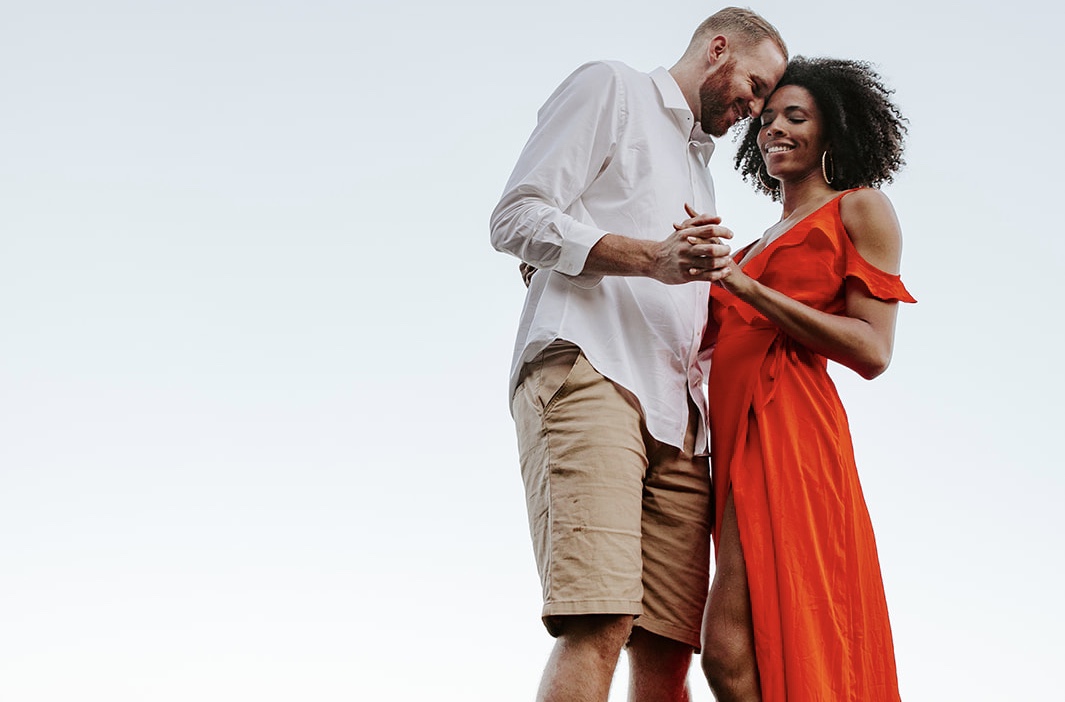
When you were a kid, what did you want to be when you grew up?
My first dream was to be a gymnast or an ice skater, but my mom said I was too tall. My dad, Richard Adams, played in the NBA. He was drafted in the fourth round of the 1978 NBA draft by the San Antonio Spurs after playing for four years at the University of Illinois. My mom, Robin Mealy-Adams, also played tennis.
I was this tall and lanky girl, but I wasn’t the kid whose parents were talking about how she is going to be great. My cousin was an athlete, too. I was the one in the family who didn’t really have a direction, but now I’m an Olympian. It’s really crazy to think about.
Volleyball wasn’t always on your radar. You’ve shared the story of how you stumbled into volleyball in high school while reading a book at your best friend’s freshman volleyball camp. When was the “aha” moment when you realized you truly loved volleyball?
I was an incoming freshman, and I stumbled upon this camp on its first day with my best friend from high school. I had some experience with volleyball from playing with my friends. I just showed up on the first day of camp, the summer before my freshman year of high school in Cincinnati, and they asked me if I wanted to join. I ended up coming back the next day and then tried out at the end of the camp.
The coaches there taught me so much. I was surrounded by girls who played clubs since they were 9 or 10 years old. I immediately had the hunger to get better and see where I could go. My dad tried to get me to play basketball and golf. My mom tried to get me to play tennis.
Playing volleyball was the first time I loved a sport for myself, not because someone wanted me to but because I just did. I loved everything about the game—the fast pace and spontaneity. I just wanted to learn everything I could and work my way up.
Playing volleyball was the first time I loved a sport for myself, not because someone wanted me to but because I just did.
You went on to play in high school in Ohio, where you won a state title, to playing college-level volleyball at Texas. How did you come to the decision to play overseas after college?
When I was in college at The University of Texas at Austin, many players had gone overseas to play, but I never knew what that looked like. I didn’t know how to get in touch with an agent or where to start. After college, I was planning to work in NYC at an advertising agency. Advertising was what I studied in college. I never had a plan to play overseas. I guess you could say it was another accident.
I just asked a coach who worked with the U.S. men’s team, and he gave me the name of an agent. After connecting and signing a contract, he became my agent. He told me there was a team in Poland and that they were ranked last in the Polish league. He said, “It’s not a great team, but I think you can get on the team and work you way up in the league.” I said, “Alright, challenge accepted.”
I made it onto the Polish team. After that, I got invited to train with the U.S. Women’s Volleyball Team. It was another space where I had to work my way up again.
How did your persistence play a part in you becoming a part of the U.S. Women’s National Volleyball Team?
This had been a dream of mine—to play in the Olympics. When I was playing abroad, I took a screenshot of the logo for the 2016 Olympics in Rio while I was watching the 2012 Olympics from my room in Poland, where I was in my first year playing overseas. I emailed a contact I had from playing on junior teams within USA Volleyball to ask about how I could get into the USA VWNT. I graduated in 2012, the year of the London Olympic Games. My contact emailed me and told me the name of the new coach, Karch Kiraly.
So I emailed the new coach. He said I was on his radar and asked for me to send video. I got invited to a try out in the summer of 2013 at the USA gym. They invited me to stay the rest of the summer, and then, I got invited officially to join the national team.
It was another grind for that. For the USA VWNT, every summer, we are practicing in California and then, we are traveling. It’s a constant grind to make the roster for the Olympic team, which is only 12 girls. It was never a straight shot to the top. If you would have asked someone in 2015 to name the future 2016 Olympic roster, they probably would not have said my name.
Today, you are an Olympic medalist. You are a sponsored athlete by big name brands like Adidas. What’s it like to be in the spotlight as a professional volleyball player?
It’s pretty surreal. When I walked into the USA Volleyball’s National Training Center for the first time, I knew exactly who the Olympians were. For me, to be that person for new players today, it’s surreal.
Also, just because you are a returning or seasoned player, it’s not the case that we don’t have to worry. I’m still battling. Now, instead of something to prove as a newbie, I also have age under my belt and I have nagging injuries under my belt. Now, we also have COVID-19, which is an additional layer of pressure. I still have to persist. I can’t just take this sigh of relief like I made it and I get to sit back. It’s not even close to that.
I still have to persist. I can’t just take this sigh of relief like I made it.
You’ve shared about the power in leading with vulnerability. How has this mentality shaped your response to social injustice in 2020?
It’s kind of ironic that starting in 2020, a personal goal of mine was to lead with vulnerability. Now, with the current climate, there’s this opportunity to use my voice in a way that I never have before. It has taken me out of my comfort zone.
In the past, athletes have been told to, as Lebron James said, “shut up and dribble.” To use my voice not only as an athlete but as an athlete to speak out on racial injustice is scary for me. I’m sad it took me this long to speak up, but so many people are sharing their stories now, which has helped me find the words for what I have been feeling.
I have connected with so many Black volleyball players who have the same experience as me and who have gone through similar experiences that I have suppressed. Oftentimes, when we think of racism, we often think of explicit examples like the KKK and something that is directly in your face, but I have been learning there are levels to it. Before, I just didn’t know. Now, I am able to put words to my experiences. It’s still scary to share those feelings, but I know that it’s important.
What is it like being a Black woman in a sport that is predominately white? How has this influenced your decision to speak up on injustices facing the Black community?
It’s been a journey. Thinking back, I think of moments when white teammates admitted to me that their first interactions with a Black person was in volleyball. The experience of being one of few Black players in a sport has put pressure on me.
I’ve heard microaggressions in comments like, “You are not like most Black people,” “Why do you talk white?” or “Can you teach me how to dance?” It has made me feel like I had to fit into their box of what a Black person should be or what they saw on TV. It has taken me growing up to figure out that my identity is not in people. No matter what I do, no matter what music I listen to or how I speak, I am Black.
It has taken me growing up to figure out that my identity is not in people.
Navigating my identity as a Black woman and athlete in a predominantly white sport has been difficult. My teammates have good intentions, but you don’t know what you don’t know. For the world to get where we are now, where we are having open dialogue about race and to dive deep in this movement for racial justice and equality, it is powerful. It’s been a long three months, a summer of diving deep into this discussion and trying to articulate these feelings related to race and racial bias that I have suppressed.
When I speak up, I think of the young Black girls who are in my situation and who are on predominately white teams and in predominantly white schools. I want them to see and connect with someone who has walked in their shoes.
As a professional athlete and USA VWNT member, you prepare four years for the Olympic Games. What was your reaction when you found out about the postponement of the 2020 Olympics?
I woke up to an email from the United States Olympic and Paralympic Committee (USOPC), and they shared with us it was postponed. Honestly, I was relieved because I was just praying it didn’t get canceled because I don’t think I would be in the next Olympics in 2024. It would be devastating for athletes like myself, who weren’t planning to go for the ‘24 Olympics.
My initial thought was we have one more year to get better. I think we are still finding ourselves as a young team. We have the opportunity to come together and connect more on a deeper level. I think the work we do in the next year will show on the volleyball court as we are able to navigate and communicate well together.
How have you stayed healthy throughout quarantine and in preparation for your season abroad?
There have been lots of changes and ups and downs, which has made it hard. When we first heard about the lockdown coming, the team was in California, and we went home with weight lifting equipment from the weight room. We started with an at-home garage workout, and I was also doing Youtube video HIIT workouts. You go from having a professional USA Olympic training center to watching Youtube videos outside while flies are buzzing around you.
Then as time passed, the rules changed, and we were allowed to work out in the USA gym while wearing masks and social distancing. Now, I am in Turkey and operating under their guidelines and operating at full level while training with my team.
I remember when we didn’t know whether the Olympics was going to be postponed or what was going to happen. As an athlete, you kind of lose sight of your goal because you have been working for four years and are supposed to ramp up for those last three months. When that’s taken away, you are left asking what the next step is.
As athletes, we are so goal-oriented. We didn’t know what our “why” was for a time. We finally found out the Olympics were postponed, but for a while, our why got completely smashed and we didn’t know what we were doing next.
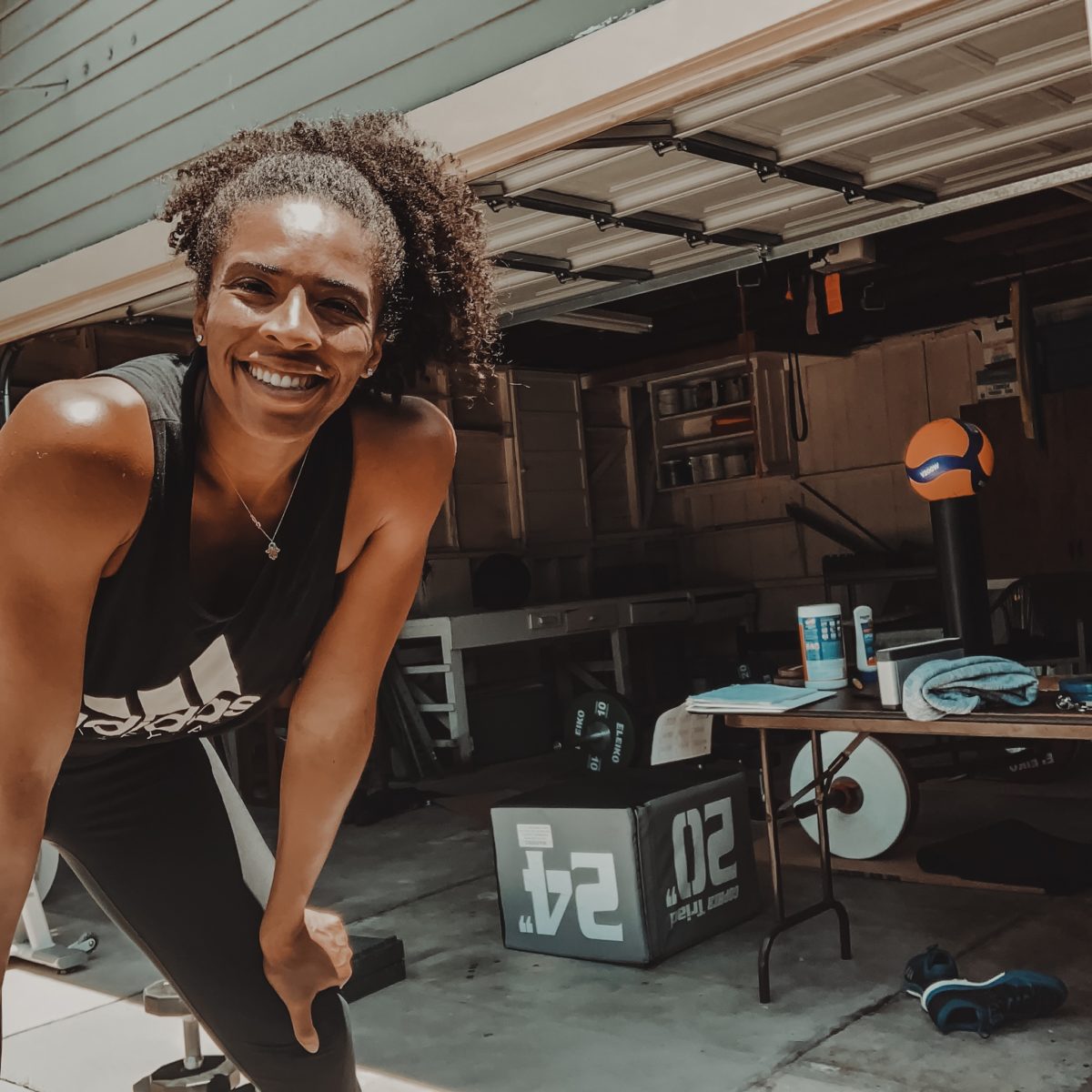
You are currently in Turkey for a 10-month season. Can you describe what it’s like to play abroad and be away from home for such long periods of time?
If you look at my Instagram feed and my stories, you could easily think that athletes have it so easy. I am overseas and play professionally, which might seem glamorous. On the other side, I miss weddings, births and holidays. I am also in a long distance relationship so it’s hard.
There’s so much sacrifice on the other side of what looks glamorous. I am in my apartment at home. A lot of the time, I eat alone after practice unless I Facetime someone. There is a lot of sacrifice that comes out of a short-term career.
There’s so much sacrifice on the other side of what looks glamorous.
As athletes, we try to squeeze out as much as possible in the time we have, but I love playing abroad because of my teammates. I’ll always have somewhere to stay in Greece or Italy if I visit. One important thing to know is that when we travel, we don’t get to see all the sites. Like if we are in Paris, we don’t get to see the Eiffel Tower necessarily. We often go from the hotel to the gym to the hotel.
In the future, I definitely can’t wait to have a steady home someday and buy a throw pillow that will stay. That may sound silly, but so many times, I have had to leave plants or throw pillows behind in apartments. I can’t wait to put down roots someday.
One of my favorite parts about playing professional volleyball is that I live in a foreign country for about 10 months out of the year, and I’m not a tourist there after a week or two. Yes, I can visit popular sights, but I feel one with the country when I am shopping in the same grocery stores as the locals and driving my car on the same roads while learning their different rules. I’m completely immersed in the culture.
I get to observe, admire and adhere to new culture practices for 10 months. It’s really beautiful to be a part of, and throughout the years, I have adapted diverse cultural practices from the countries where I have lived. For example, I do my best to eat slowly like the Italians, and I will make my favorite Turkish soups for my kids one day called Mercimek.
Tell me about your recent luggage debacle when you arrived in Turkey. How did you feel when your bags arrived?
After a 20-hour day, I arrived in Turkey and waited and waited at the baggage claim. My bags were not there, and it was the worst feeling ever. I packed three, 70 pound bags for 10 months. My whole life as an athlete is in those bags—things that keep me sane when I’m in a foreign country by myself like my pillowcase or my stuffed animal and things I need as an athlete like protein powder and wraps.
My teammates immediately stepped up and made sure I had everything I needed. They know that as a foreigner, it is the most devastating feeling when you are playing somewhere for 10 months and don’t have your things. My bags missing literally kept me up at night, and those first few days, nothing felt like home. I didn’t feel grounded because nothing was mine. It took five or six days for my bags to arrive, but it felt like a month. Each day was excruciating.
In the midst of that unfortunate situation, it felt good to be in a new situation and that my teammates cared about me and wanted to make sure I felt cared for. It made me feel supported right away without even having played on the team yet.
Tell me a little bit about Journey Strength.
Journey Strength started off as an inspirational apparel line, but when I was traveling to different countries and inventory was also in different places, it became hard to keep track of the product. It has transformed into an online space with encouraging words and reminders to help people along their journey. My hope is to remind people to keep going and that they are enough.
I’ve always loved being creative and products with inspirational words that people can take with them. My phone is full of screenshots of quotes I have found. At first, I would hoard them to myself, but I always wanted to share them with other people. All of the quotes that I share are words that I personally connect to and reminders that have helped me on my journey. To see others connect to them and say “me too” or “I needed that” reminds me that we are all on similar journeys.
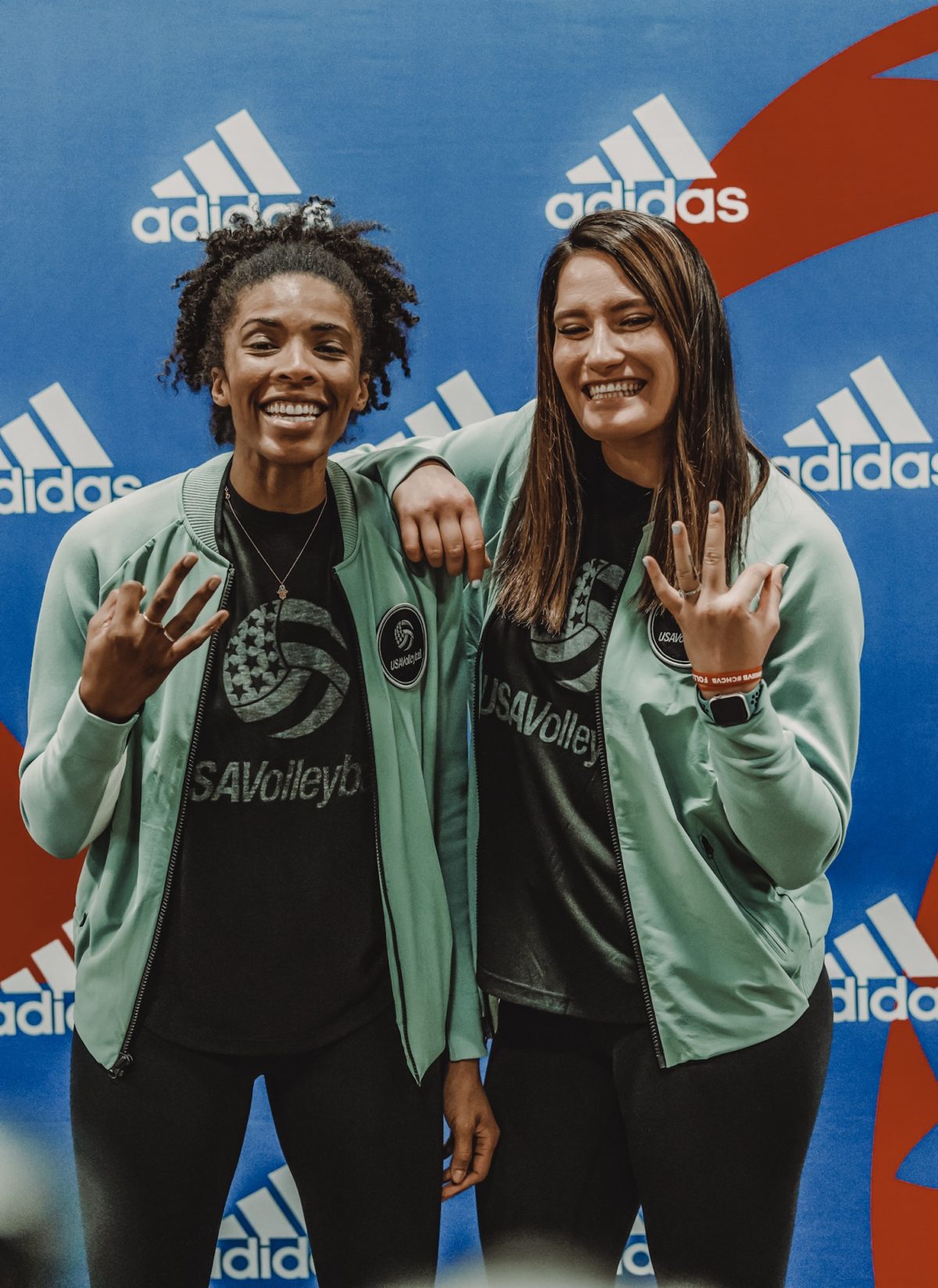
Who are some of the women in your support system who have helped along your career and personal journey?
My mom. She works in corporate America. From an early age, she has reminded me to be a leader and not a follower. I didn’t understand that at a young age. As I go along on my journey, it reminds me to think for myself and that I don’t have to follow what everyone else is doing. She also taught me not to be afraid to be myself and to think differently.
My mom is the strongest woman I know. She has had many hurdles in her life and to see her persist, I think that’s where I get it from. I took it too literally. If I want something, even if it’s hard, I am going to do it and find a way.
If I want something, even if it’s hard, I am going to do it and find a way.
Knowing what you know now, what advice would you give to your younger self?
I would say, “You are enough.” At so many points in my career, I felt like I wasn’t and that my skills were not enough. Even after getting scholarships and playing on top teams, I felt like I didn’t have enough to be what I wanted to be, that I just had potential.
Even along the journey, I was enough. I didn’t have to be something else to be a great player or a great person. I was such a rambunctious kid and was always getting into trouble. I always felt like maybe there was something wrong with me, but at every turn of my life, I was enough.
What advice would you give to young women interested in pursuing professional sports?
Try to get one percent better every single day. Remember to enjoy the process.
To follow along with Rachael’s season abroad and her journey to the 2021 Olympics, follow her on Instagram. For encouraging content from Rachael, check out Journey Strength’s website and Instagram.
Feature Image via Tobi Lacono

